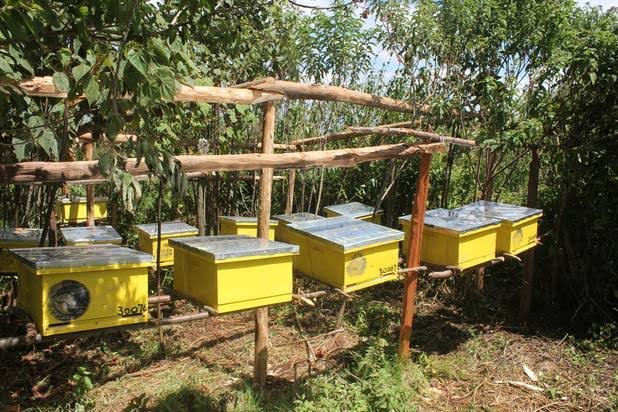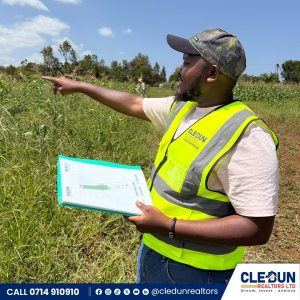Honey — golden, sweet, and natural — is quietly emerging as one of the most valuable commodities in the world. According to Mr. Kyalo Mutua, Chief Executive Officer of Savannah Honey, “Honey is now five times more expensive than oil,” and global demand is soaring — not just in Africa, but across the Middle East, Europe, and Asia.
We spoke to Mr. Kyalo, the visionary behind Savannah Honey — a company operating in seven countries and the only one in the region that delivers beehives, installs them for farmers, manages the entire process, and buys the end product. His advice is simple: if you have idle land, think beekeeping. From our conversation, one thing became clear — Kenyans are sitting on a goldmine: bees.
In Kenya, a kilo of pure honey sells for between KSh 1,000 and KSh 1,800 — more than five times the cost of a litre of petrol. In the Arab market, the same jar can fetch up to $25 (KSh 3,300). With such prices, it’s no surprise that honey producers worldwide are buzzing with excitement. Yet, despite Kenya’s fertile land and year-round flowering vegetation, the country is tapping only about 20% of its honey production potential.
A Sleeping Giant in the Making
Beekeeping has existed in Kenya for centuries, often as a traditional side activity passed down through generations. But today, it represents a multi-billion-shilling industry waiting to be unlocked. Kenya’s potential honey output is estimated at 100,000 metric tonnes annually, yet only a fraction is currently produced — largely due to a lack of modern equipment, technical skills, and awareness.
As Mr. Kyalo Mutua aptly puts it, “There are people who have left their land idle when they can earn millions of shillings from it.” The math supports him: one acre of well-managed apiaries can yield multiple income streams — from honey, beeswax, and royal jelly to propolis, pollen, and even bee venom.
The Gold Within the Hive
Few realize that a gram of bee venom costs about KSh 8,000 — making it seven times more valuable than gold. Royal jelly, the protein-rich secretion that feeds the queen bee, sells at KSh 38,000 per kilo. Bee pollen fetches around KSh 6,800, while propolis — the bees’ natural antibiotic — goes for KSh 1,900 per kilo. Even beeswax, often overlooked, is used in cosmetics, pharmaceuticals, and industrial products.
The message is clear: bees are not just pollinators; they are miniature manufacturers of high-value natural products.
Why Kenya Is Perfect for Beekeeping
Kenya’s geography and climate make it one of the best environments for commercial beekeeping. With vast acacia belts, flower-rich landscapes, and minimal pesticide use in many rural areas, the country enjoys a natural edge.
“Every flowering season, Kenya leaks with nectar,” says Evelyn Nguku, Director of Research and Development at Savannah Honey. “We have over 80% untapped potential in nectar flow.”
Unlike most forms of farming that demand heavy capital investment, beekeeping is low-cost, low-labour, and highly rewarding. It blends seamlessly with other agricultural activities — meaning a farmer can integrate beehives into a maize field, coffee plantation, or fruit orchard with minimal disruption.
Changing the Narrative
Traditionally, beekeeping in Kenya has been perceived as the domain of the poor or elderly in rural areas — a view that has hindered its growth. Yet globally, honey has become a premium health and lifestyle product celebrated for its medicinal, nutritional, and cosmetic benefits.
Pure natural honey never expires. It’s a proven antioxidant, antibacterial remedy, natural wound healer, and immune booster. From soothing sore throats to aiding weight management and improving skin health, honey’s versatility gives it both culinary and therapeutic prestige.
Beeswax, too, is a prized ingredient in the global beauty industry due to its anti-inflammatory and moisture-locking properties — ideal for lip balms, creams, and lotions. Industrially, it’s used as a corrosion-resistant coating and even for cheese preservation.
Royal jelly continues to attract attention in the nutraceutical market, renowned for fertility and menopausal relief benefits, and even under study for cancer and liver therapy.
Empowering the Next Generation of Beekeepers
Savannah Honey has been at the forefront of transforming Kenya’s beekeeping landscape. Over the past seven years, the company has trained thousands of aspiring beekeepers, supplied modern Langstroth hives, provided colonies, and offered end-to-end technical and market support.
The Langstroth hive, with its removable frames and efficient design, has revolutionized honey harvesting — ensuring both bee safety and higher yields. This sustainable approach is scalable, making it ideal for smallholder farmers and youth entrepreneurs.
Beekeeping: The Bridge from Poverty to Prosperity
As droughts, erratic rains, and fluctuating crop prices push many farmers to the brink, beekeeping presents a sustainable alternative. It requires no irrigation, minimal maintenance, and offers guaranteed returns — since bees do the work themselves.
“In terms of returns,” says Mr. Kyalo, “bees offer one of the highest yields from any investment.” And he’s right. With local honey prices high and export demand soaring, beekeeping is proving that Kenya’s next agricultural boom might not come from the soil — but from the air above it.
The Final Buzz
Kenya’s potential to become Africa’s honey powerhouse is immense. The global demand for natural honey and bee products is expanding rapidly as consumers embrace wellness, organic nutrition, and sustainability.
To unlock this opportunity, deliberate national effort is required — including training, funding, access to modern equipment, and stronger market linkages. With the right policies and private-sector champions like Savannah Honey leading the charge, Kenya could turn its idle land into liquid gold mines.
After all, as oil wells dry up, the beehive remains one of nature’s most renewable sources of wealth — one that hums, heals, and pays handsomely.







More Stories
Safaricom Director Honored with Global Social Innovation Award
Cledun Realtors Expands Thika Housing Project with Prestige Court Phase II
Former Ichagaki MCA Dr. Mwangi Joins UDA for Murang’a Senatorial Race